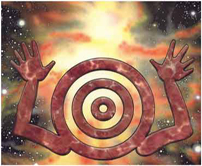|
|
|
|
An Interview with Rick Veitch  The following interview was conducted via e-mail on March 12, 2005: Al Nickerson: Can you briefly tell me how and why The Creator's Bill of Rights was created? Rick Veitch: I believe Scott McCloud wrote a rough draft and brought it with him to the Northampton Creator's Summit. When he brought it up at the first meeting it caught everyone's attention and the group decided to try and see if we could hone it into something complete and substantial. I'm not sure why Scott first drafted it, but the reason I felt it worth defining was that many creators did not know what their rights to their own work were at that time. I knew loads of artists and writers who just assumed if they were being paid the company owned whatever they did. This was especially the situation at the big comic book companies who had a history of assuming everything; often without any paper being passed. Young creators, and there were many in the mid 1980's, needed guidance in these ownership matters. Nickerson: What were the greatest accomplishments of the Bill? Do you think the Bill had any direct affects on the comics industry? Veitch: One of the accomplishments was that a group of cartoonists actually organized and came to agreement on something reasonably important. This was a new thing at the time. I'm not sure what direct effect the Bill had on the industry. Things were already changing at the big publishers. They were just offering their first creator owned deals and creator shares in work-for-hire characters (Constantine was one of the very first work-for-hire characters that the creators received a piece of.) I wasn't as militant as many of the others. I had just come from a four year run at Epic which had a very enlightened set of deals, and completely owned the mini-series, two graphic novels and bunch of short works I had produced there. Maybe the most direct effect was the formation of Tundra by Kevin Eastman. Tundra was originally set up along the Bill's guidelines and wasn't able to make it work. Nickerson: I spoke with Scott McCloud, and he maintains that the Bill really doesn’t benefit self-publishers all that much since when self-publishing, the creator(s) already have complete ownership and control of their work. Do you agree? Veitch: Sure, if the creator remains self-publishing. But history shows us that many of the self-publishers went on to license their properties with bigger publishers, films, tv etc. Some self-publishers, most notably the Image group, became work-for-hire shops themselves. Nickerson: Do you think that the Bill is still relevant today? Veitch: Detailing basic ownership principles is always relevant. I don't think its as much of an emergency situation as it was back then. The modern mainstream work-for-hire deal is much fairer to the creator than it was in the bad old days. Getting paid real upfront money, health insurance, royalties, reprint fees and sharing in film and tv revenue is a reasonable way to work. Nickerson: Does the Bill need to be tweaked to apply to the current workings of the comics industry? If so, who should be the ones tweak it? Should it be you guys, the originators of the Bill, or the next generation of creators? Or both? Veitch: Good question. I haven't analyzed the Bill in a long while so I'm not sure if I'd see any way to modernize it or not. Probably the best way to increase its relevance is to publicize it. Get it into the hands of the new generation rising so they don't get hustled. Nickerson: How do you feel about the Bill today? Veitch: It's still part of me. It has guided me in all my business dealings for the last twenty years. Nickerson: Do you have any other insights or recollections of the Bill that you want to bring up? Veitch: Only that the summit was the beginning of the end for the Aardvark/Turtles coalition which had showed so much promise. The Turtles were moving into the popular culture so Kevin (Eastman) and Peter (Laird) had a much different set of goals than they'd started out with doing their comic. Dave was pretty much of a self-publishing purist, of course so, cracks began to develop between them in Northampton. |
|
|
|
|
|
|
|
 |
|
|
|
|